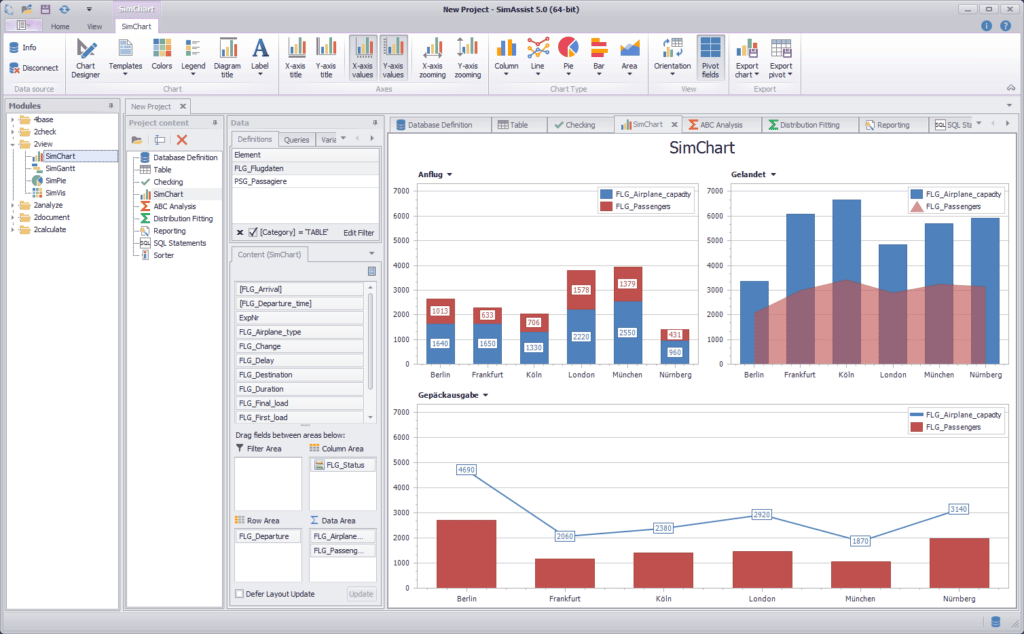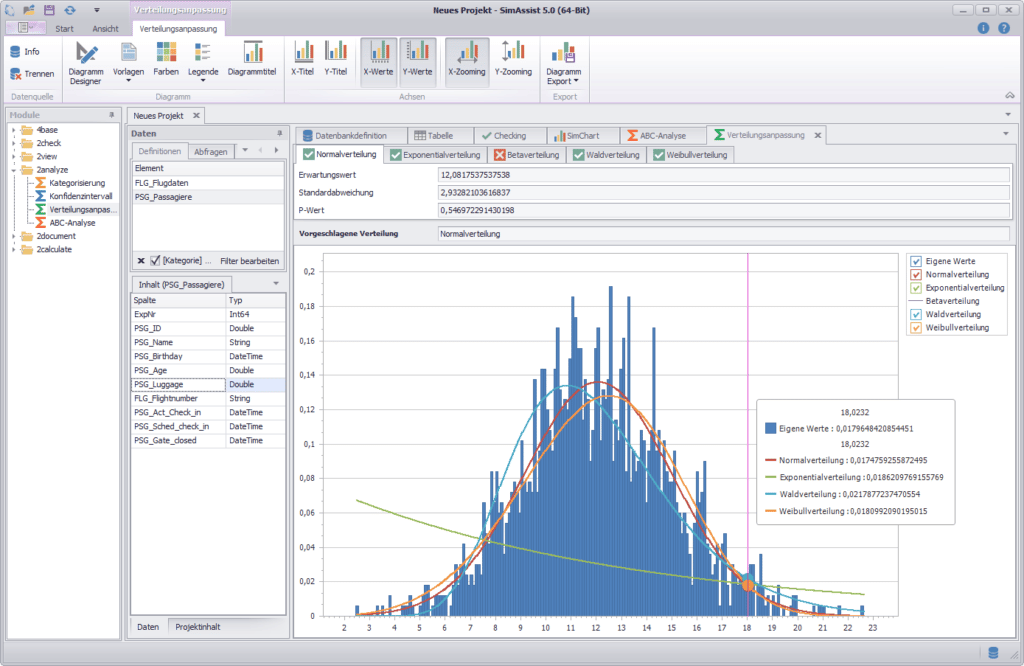Efficient data analysis as the cornerstone for successful projects
Introduction to data analysis
In today’s data-driven world, analyzing existing digital information is crucial to making effective decisions in production and logistics. The use of advanced analytical methods is often the precursor to comprehensive improvement and simulation projects that help companies to optimize processes and plan resources efficiently. However, it is not uncommon for the data analysis itself to provide sufficient information so that it can form a comprehensive basis for making objective decisions on change measures.
Data procurement and preparation
The process usually begins with the identification of data sources and the careful procurement of relevant data, which forms the basis of the qualitative analysis. The data obtained must be carefully checked for quality, completeness and relevance and processed accordingly. This step is crucial because only well-prepared data makes it possible to carry out precise analyses and draw valid conclusions.
SimAssist: The tool for effective data analysis
Our software, SimAssist (but also other analysis tools such as Knime), plays a central role in this. As a data analysis tool, SimAssist enables efficient processing and analysis of customer data, regardless of the data source. Through intuitive operation and powerful algorithms, SimAssist supports companies in extracting valuable information from a flood of data, which is essential for strategic planning.
The direct benefits of data analysis
Once processed, data provides insight into various aspects of production and logistics processes. These insights are often so revealing that they alone can be sufficient to identify and implement necessary adjustments to company processes. In such cases, the comprehensive simulation can build on this or possibly be omitted. This saves time and resources while enabling rapid improvements.
Strategic decisions based on solid data
The strategic use of data analysis not only allows companies to identify and improve inefficient processes, but can also lead to a better understanding of process interrelationships. This allows decision makers to make informed predictions based on solid data rather than assumptions. This ability is particularly valuable in a fast-moving market environment, as is often the case in production and logistics.
Proactive risk management through advanced data analysis
In addition, SimAssist’s advanced analysis function enables detailed risk analysis. By identifying potential risks at an early stage, companies can take proactive measures to prevent problems before they arise.
Conclusion
In conclusion, it can be said that data analysis plays a key role in the modern optimization of business processes. It not only offers the opportunity to optimize existing processes, but also opens up ways to master future challenges through preventive measures.



